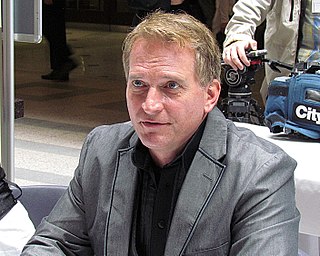A Quote by Henry Giroux
The present generation has been born into a throwaway society of consumers in which both goods and young people are increasingly objectified and disposable.
Quote Topics
Related Quotes
The structures of neoliberal modernity do more than disinvest in young people and commodify them, they also transform the protected space of childhood into a zone of disciplinary exclusion and cruelty, especially for those young people further marginalized by race and class who now inhabit a social landscape in which they are increasingly disparaged as flawed consumers or pathologized others.
Human beings are themselves considered consumer goods to be used and then discarded. We have created a “disposable” culture which is now spreading. It is no longer simply about exploitation and oppression, but something new. Exclusion ultimately has to do with what it means to be a part of the society in which we live; those excluded are no longer society’s underside or its fringes or its disenfranchised – they are no longer even a part of it. The excluded are not the “exploited” but the outcast, the “leftovers”.
I would argue that we have a generation of young people, particularly minorities, who are no longer putting up with the kinds of things their parents put up with. They're much more self-confident. It's no longer acceptable to make fun of people because of race or sex. But it has always been present in American society.
I meet young people everywhere who are wonderful and faithful; youth who want to do the right thing and who indicate the reality of what I have been saying for a long time, that we've never had a better generation of young people in the Church than we have today. They are faithful. They are active. They're knowledgeable. They are a great generation, notwithstanding the environment in which many of them are growing up.
We don't want this globalised economic system which does us so much harm. Men and women have to be at the centre (of an economic system) as God wants, not money. The world has become an idolator of this god called money. To defend this economic culture, a throwaway culture has been installed. We throw away grandparents, and we throw away young people. We have to say no to his throwaway culture. We want a just system that helps everyone.
Even very recently, the elders could say: 'You know, I have been young and you never have been old.' But today's young people can reply: 'You never have been young in the world I am young in, and you never can be.' ... the older generation will never see repeated in the lives of young people their own unprecedented experience of sequentially emerging change. This break between generations is wholly new: it is planetary and universal.
Students need to learn how to unlearn those elements of a market driven society that deform their sense of agency, reducing them to simply consumers or even worse to elements of a disposable population. So we need to understand who controls the means of public education and the larger forms of what Raymond Williams called the cultural apparatuses of permanent education both in terms of the dangers they pose and the possibilities they harbor.
We cannot live without trade. A society can neither advance nor improve without excess of disposable income. This excess can only be amassed through the production of goods and services necessary or attractive to the mass. A financial system which allows this leads to inequality; one that does not leads to mass starvation.

































